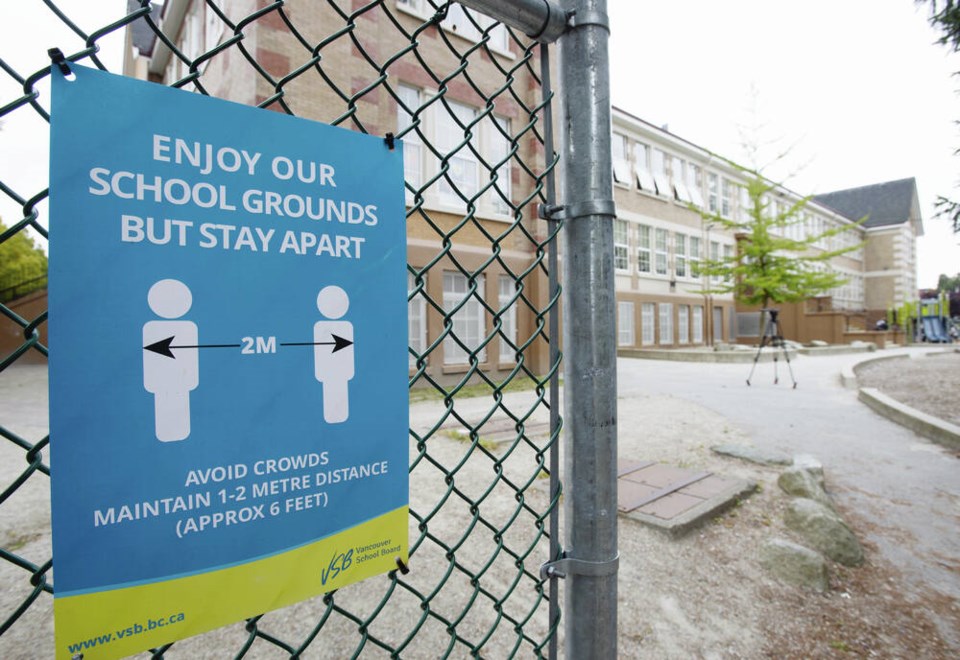As principal of a 400 student K-7 school in New Westminster in the 1970s, one of the most valued members of our “team” was the school liaison police officer from the New Westminster city police.
A number of the kids in the school lived temporarily in the neighbourhood because one parent, almost always dad, was absent, having been consigned to the maximum security federal penitentiary located on the outskirts of New Westminster until it was decommissioned in 1980.
As you can imagine, a child living with the remaining parent in the large multi-unit rental on Queens Avenue probably heard a lot about how the police were not to be trusted under any circumstances and were the sole reason dad was in jail.
It was into this environment that the young constable who had been assigned as the school’s liaison officer, complete with full street uniform and pistol on his hip, came, every week, to speak to the kids about traffic safety, personal safety and how to defuse conflict situations without resorting to violence.
With those kids, for the reasons I’ve explained, it was not an easy task. On more than one occasion, the young constable would come into my office and say: “I don’t know how you folks can do this for 190 days every year?”
I’d ask him what kinds of questions the kids would ask and, even with a turnover in liaison officers, the questions would be more or less the same: “Did you ever shoot a bad guy? Did you chase bad guys in your police car? What do you actually do?” and so on.
All these questions were formed by a relentless series of TV shows developed to maximize the excitement and depicting the danger of a policeman’s life.
The young constable told me: “The kids seemed almost disappointed when I told them that, in my nine years as a police constable, I had never had cause to take my pistol out of its holster.”
But there was more to the constable’s value to the school, to me and to the kids.
The aspects of a kid’s life that I could only guess about the liaison officer knew a bit more about and, without revealing confidential information, he’d sometimes phone me about a certain Grade 7 boy and simply say: “just thought I’d let you know Leon is likely to be a little more erratic than usual today.”
Other times, I’d see him out at the zebra crossing before or after school, chatting with the kids and making sure that drivers took extra care when the kids were crossing the busy road outside the school.
Sometimes, if I was out on the playground at recess, I’d ask the kids: “Did you see constable XX today”. The response would always be something along the lines of: “Yes, he’s a good guy. I never met a real cop before – he’s not what I thought.”
At some point during those years, I was asked to go to the police training academy and talk about dealing with kids in a classroom.
I had expected to meet a group of newbie trainees but, to my surprise, the room was full of experienced officers from some pretty tough gigs like the drug squad or the gang squad, but who had asked to be part-time school liaison officers in addition to their normal duties.
Like any good teacher, I began by asking these men and women what they needed from me. Their responses were fairly consistent, and were along the lines of: “We get to deal with people for whom its almost too late but who, if we’d had a chance to get to know them as kids and for them to get to know us, trust us – well, things might just have turned out differently for them.”
What I gathered from that experience was that police officers who feel that they can make a positive difference in the lives of some kids deserve, as with teachers like me, some special training before they are assigned to school liaison jobs.
It’s also a chance for police officers to rediscover some of the optimism about making the world a better place that got them into police work before the grind and the pessimism about some of the harsh realities of the job send them off on stress leave.
Working with kids, as I did in 37 years of experience in K-12, can refresh anyone’s optimism and the cops we turn to whenever we need help deserve no less from us, from politicians and especially from teacher organizations.
Geoff Johnson is a former superintendent of schools.



